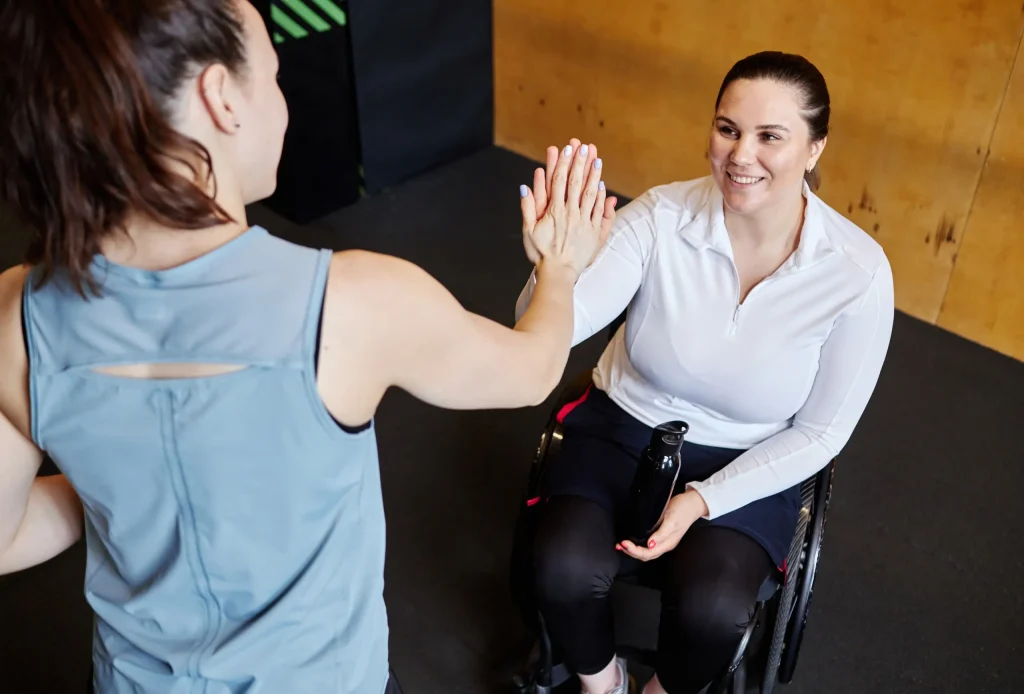When Professional Standards Meet Personal Stakes
I’ll never forget the phone call that changed everything. A colleague, tears in her voice, describing the substandard care her son was receiving from his NDIS provider. Despite paying premium rates, the support workers were untrained, the communication was non-existent, and worst of all, her son was regressing rather than thriving.
As experienced nurses who’ve worked extensively within the disability sector, we’ve witnessed firsthand the devastating gap between what the NDIS promises and what many providers actually deliver. Choosing the right NDIS provider isn’t just important—it’s life-altering. The difference between an exceptional provider and a mediocre one can determine whether someone achieves their goals or simply exists within the system.
That’s why we founded Ultima Care. Not because the market needed another provider, but because it desperately needed providers who understood both the clinical complexities of disability care and the personal anguish of navigating an imperfect system.
The NDIS Provider Minefield: Why Good Intentions Aren’t Enough
Let’s address the elephant in the room: the NDIS provider landscape is riddled with well-meaning organisations that simply aren’t equipped to deliver the quality care participants deserve.
The Cookie-Cutter Catastrophe
Most providers operate on standardised models that ignore the fundamental truth of disability care: every person’s needs are unique. They offer preset packages and one-size-fits-all approaches that work beautifully on paper and terribly in practice.
The Experience Illusion
Here’s something that might shock you: many NDIS providers employ staff with minimal disability care experience. They meet basic qualification requirements but lack the nuanced understanding that comes from years of hands-on practice.
As nurses, we understand that managing complex medical conditions, behavioural challenges, and family dynamics requires more than textbook knowledge. It requires clinical judgement, crisis management skills, and the ability to recognise subtle changes that could indicate emerging health issues.
The Communication Black Hole
Perhaps most frustratingly, many providers treat communication as an afterthought. Families describe weeks without updates, generic reports, unresponsive contact systems, and no clear escalation pathways for urgent issues.
What Regulatory Standards Actually Mean (And Don’t Mean)
NDIS registration tells you a provider meets baseline requirements. It doesn’t tell you how experienced their staff actually are, whether they provide ongoing training, or their actual participant outcomes.
Compliance is not the same as excellence. Many registered providers operate at the bare minimum standard because that’s all that’s required.
The Five Non-Negotiable Qualities of Exceptional NDIS Providers
After years of nursing practice, we’ve identified five qualities that separate truly exceptional NDIS providers from the rest:
1. Genuine Clinical Expertise
Look beyond certificates to actual experience. Exceptional providers employ staff with relevant healthcare backgrounds, experience managing complex conditions, and ongoing professional development that goes beyond mandatory requirements.
2. Truly Person-Centred Philosophy
Real person-centred care means individualised care plans that reflect actual preferences, flexible service delivery that adapts to changing needs, and meaningful choice and control in daily decisions.
3. Transparent Communication Systems
Exceptional providers treat communication as a core service component through regular updates, clear reporting systems, accessible contact methods, and documented escalation procedures.
4. Demonstrated Flexibility and Responsiveness
Quality providers offer rapid response capabilities, flexible scheduling, creative problem-solving when standard approaches aren’t working, and emergency backup systems.
5. Proven Track Record with Measurable Outcomes
Outstanding providers can demonstrate their impact through specific participant success stories, measurable goal achievement, client testimonials, and low staff turnover rates.
Red Flags That Should Send You Running
Just as important as recognising quality is identifying warning signs:
| Red Flag | What It Indicates | Why It Matters |
|---|---|---|
| High staff turnover | Poor management or toxic workplace culture | Inconsistent care, constant relationship rebuilding |
| Vague qualification descriptions | Minimal experience or training | Potential safety risks, poor care quality |
| Pressure for immediate decisions | Sales-focused rather than care-focused approach | May not be genuinely considering your needs |
| Generic service descriptions | One-size-fits-all mentality | Unlikely to meet individual requirements |
| Poor online reviews mentioning communication | Systemic communication problems | Ongoing frustration and information gaps |
| No clear crisis management protocols | Unprepared for emergencies | Potential danger during critical situations |
Trust your instincts. If something feels off during initial conversations, it’s unlikely to improve once services begin.
The Questions That Reveal Everything
When evaluating potential NDIS providers, ask these revealing questions:
About Staff Qualifications:
- “What percentage of your support staff have healthcare backgrounds?”
- “How do you ensure staff competency in managing [specific condition]?”
- “What ongoing training do staff receive beyond mandatory requirements?”
About Service Customisation:
- “Can you provide an example of how you’ve adapted services for someone with similar needs?”
- “How flexible are you with scheduling and service delivery methods?”
About Communication:
- “How often will I receive updates, and in what format?”
- “How quickly do you typically respond to urgent communications?”
About Crisis Management:
- “What protocols do you have for medical emergencies?”
- “What backup systems ensure service continuity?”
Pay attention not just to the answers, but how comfortable the provider seems with these questions. Quality providers welcome detailed inquiries because they’re confident in their systems.
The Counterintuitive Truth: Why Bigger Isn’t Always Better
Here’s something the disability sector doesn’t often discuss: smaller, specialised providers frequently deliver superior care to large corporate organisations.
The Personal Relationship Advantage
Smaller providers often offer consistent staff assignments that allow genuine relationships to develop, direct access to decision-makers when issues arise, and personal investment in outcomes from leadership who know participants by name.
The Founder-Led Difference
Organisations founded by people with professional healthcare backgrounds often demonstrate deeper understanding of participant perspectives, clinical insight that improves safety and outcomes, and passionate commitment that goes beyond business objectives.
At Ultima Care, our nursing backgrounds mean we understand both the clinical complexities of disability care and the personal challenges families face. We didn’t enter this field for business opportunities—we entered because we saw gaps that needed filling and had the skills to fill them.
Real-World Decision Making: A Practical Framework
When choosing between NDIS providers, use this systematic approach:
Phase 1: Initial Screening
- Verify registration and insurance coverage
- Check online reviews and complaints
- Confirm they serve your geographic area
- Ensure they offer required service types
Phase 2: Deep Evaluation
- Conduct detailed interviews using our suggested questions
- Request and contact provided references
- Review sample documentation and reporting
- Assess communication responsiveness during inquiry process
Phase 3: Trial and Assessment
- Negotiate a trial period with clear evaluation criteria
- Document initial impressions and outcomes
- Gather feedback from all family members involved
- Make a confident long-term decision
Success Stories: When the Right Match Changes Everything
After struggling with providers who treated her autism as a limitation, Sarah found a provider with clinical expertise in neurodiversity. Within six months, she’d developed independent living skills and found part-time employment. The difference? Staff who understood that her communication style was a strength to leverage, not a deficit to overcome.
Following a spinal injury, Michael worked with a large corporate provider for two years with minimal progress. Switching to a smaller, nurse-led organisation changed everything. Their clinical background meant they recognised signs of depression early and coordinated with his medical team effectively. Today, he’s living independently and pursuing further education.
Your Care Deserves More Than Good Enough
After years of nursing practice and witnessing the profound impact of quality disability care, I’m convinced of one fundamental truth: exceptional NDIS providers don’t just deliver services—they transform lives.
The difference between mediocre and outstanding care isn’t just about comfort. It’s about safety and health outcomes, goal achievement, dignity and respect, family peace of mind, and genuine community inclusion.
You deserve providers who understand that disability care is healthcare. You deserve professionals who bring clinical expertise, personal compassion, and genuine commitment to your journey.
Take the Next Step Towards Better Care
If you’re ready to experience the difference that clinical expertise and genuine care commitment can make, start with a conversation. Quality providers will invest time in understanding your needs rather than rushing to sign contracts.
Ask the tough questions using our framework. Don’t accept vague answers—your care is too important. Trust your instincts, and consider clinical expertise given the complexity of disability-related health needs.
At Ultima Care, our nursing backgrounds and personal NDIS experience give us unique insight into what quality disability care looks like. We understand that choosing an NDIS provider isn’t just a service decision—it’s a trust decision.
If you’d like to discuss how our clinical expertise and personalised approach might benefit you or your loved one, contact Ultima Care today to explore whether we’re the right fit for your journey towards better care.
Your care deserves more than good enough. It deserves exceptional.



